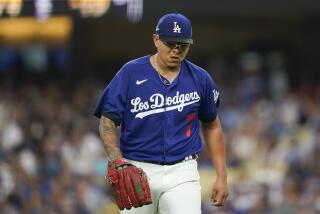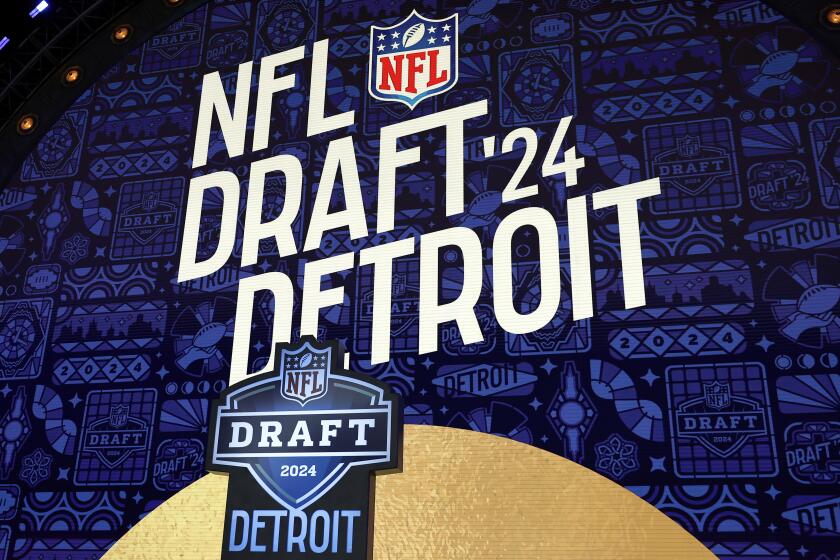As drug suspensions loom, MLB union chief sees lengthy appeal process
NEW YORK — As baseball braces for the announcement of mass suspensions in the coming weeks, the head of the players’ union said Tuesday he did not believe any player challenging a suspension would miss games this season.
Michael Weiner, executive director of the Major League Baseball Players Assn., also said suspensions for first offenders could range far beyond the usual 50 games. He said he does not know how many players might be affected.
“It’s going to take some time … for the commissioner’s office to finish its investigation,” Weiner told the Baseball Writers Assn. of America.
The Biogenesis scandal, referring to the name of a since-closed Florida clinic whose director is alleged to have provided players with performance-enhancing substances, could lead to the suspensions of more than a dozen players. Among the players already interviewed by MLB investigators: Alex Rodriguez of the New York Yankees — scheduled to make his season debut next week — and Ryan Braun of the Milwaukee Brewers.
Weiner said he hopes the union can engage the commissioner’s office in discussions about penalties and appeal procedures “within the next month” and that appeal hearings for suspended players could start “as soon as September.”
The commissioner’s office believes suspensions and appeals can be processed by the end of the season, according to a person familiar with the process but not authorized to discuss it.
Under baseball’s drug policy, players testing positive for performance-enhancing substances are subject to a 50-game suspension for the first offense, 100 games for the second, a lifetime ban for the third. MLB officials are likely to use that scale in determining the length of the penalties, the person said.
However, according to union officials, players suspended on a basis other than a positive test are not subject to those penalties and can be punished for any length of time at the discretion of the commissioner. That could leave room for the union and the commissioner’s office to negotiate the length of a suspension, perhaps with shorter suspensions offered to players willing to forfeit an appeal.
The evidence in the cases in question is expected to include clinic records, money trails and interviews with Biogenesis director Tony Bosch and others.
Weiner said not all players subject to suspension have met with MLB investigators.
“When all the interviews are done,” he said, “we will meet with the commissioner’s office and try and work something out.”
Union officials say the possibility of multiple hearings — before baseball’s lone arbitrator — makes it probable that any player choosing to challenge a suspension would not miss any games this season.
Commissioner Bud Selig, who also met with the baseball writers, declined to discuss the Biogenesis investigation in any detail but said it was “thorough, it’s comprehensive and it’s aggressive. I’m proud of it.”
Selig formed an investigative unit after the Mitchell Report, issued in 2007 and commissioned after the sport took a beating in congressional hearings for its reluctance to adopt a stringent anti-drug policy.
“We must be doing all right,” Selig said. “I haven’t heard from anybody in Washington in 81/2 years.”
twitter.com/BillShaikin
More to Read
Get our high school sports newsletter
Prep Rally is devoted to the SoCal high school sports experience, bringing you scores, stories and a behind-the-scenes look at what makes prep sports so popular.
You may occasionally receive promotional content from the Los Angeles Times.







